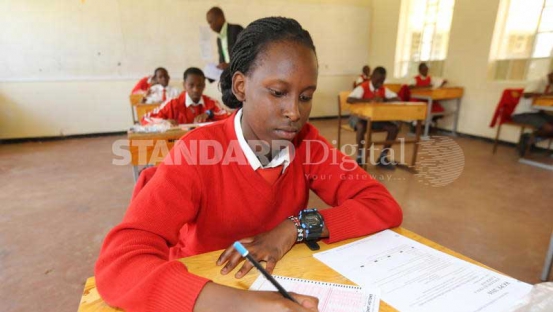×
The Standard e-Paper
Join Thousands Daily

New features have been introduced to curb cheating as 1.6 million candidates prepare to sit their national primary and secondary school exams.
The 1,003,556 candidates registered for the Kenya Certificate of Primary Education (KCPE) exam will find their names and a coloured passport photograph already printed on the answer sheets.